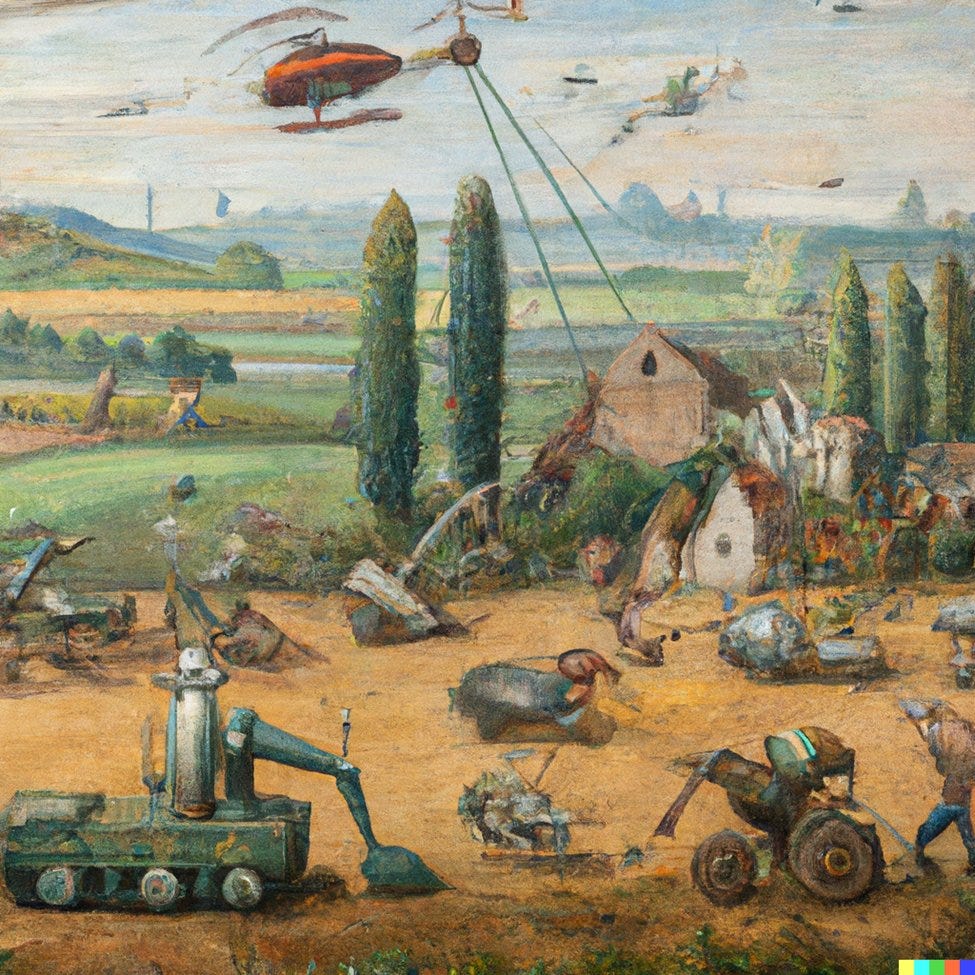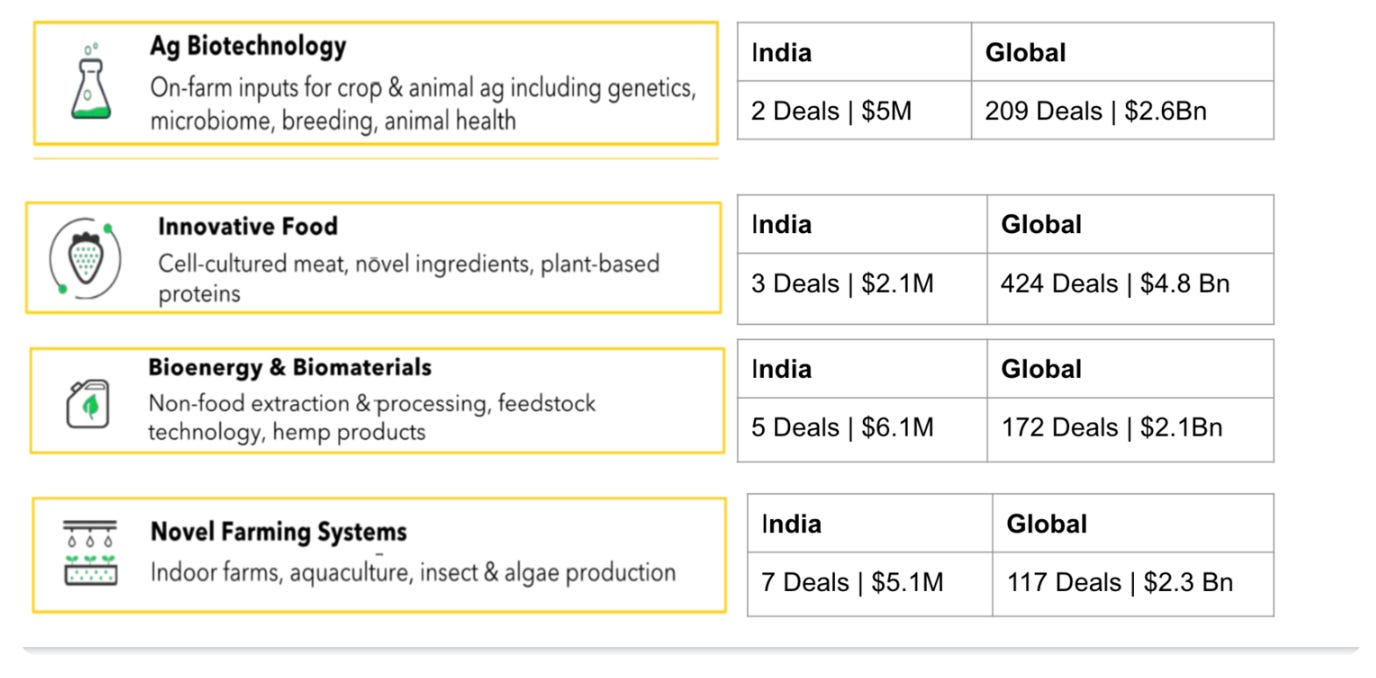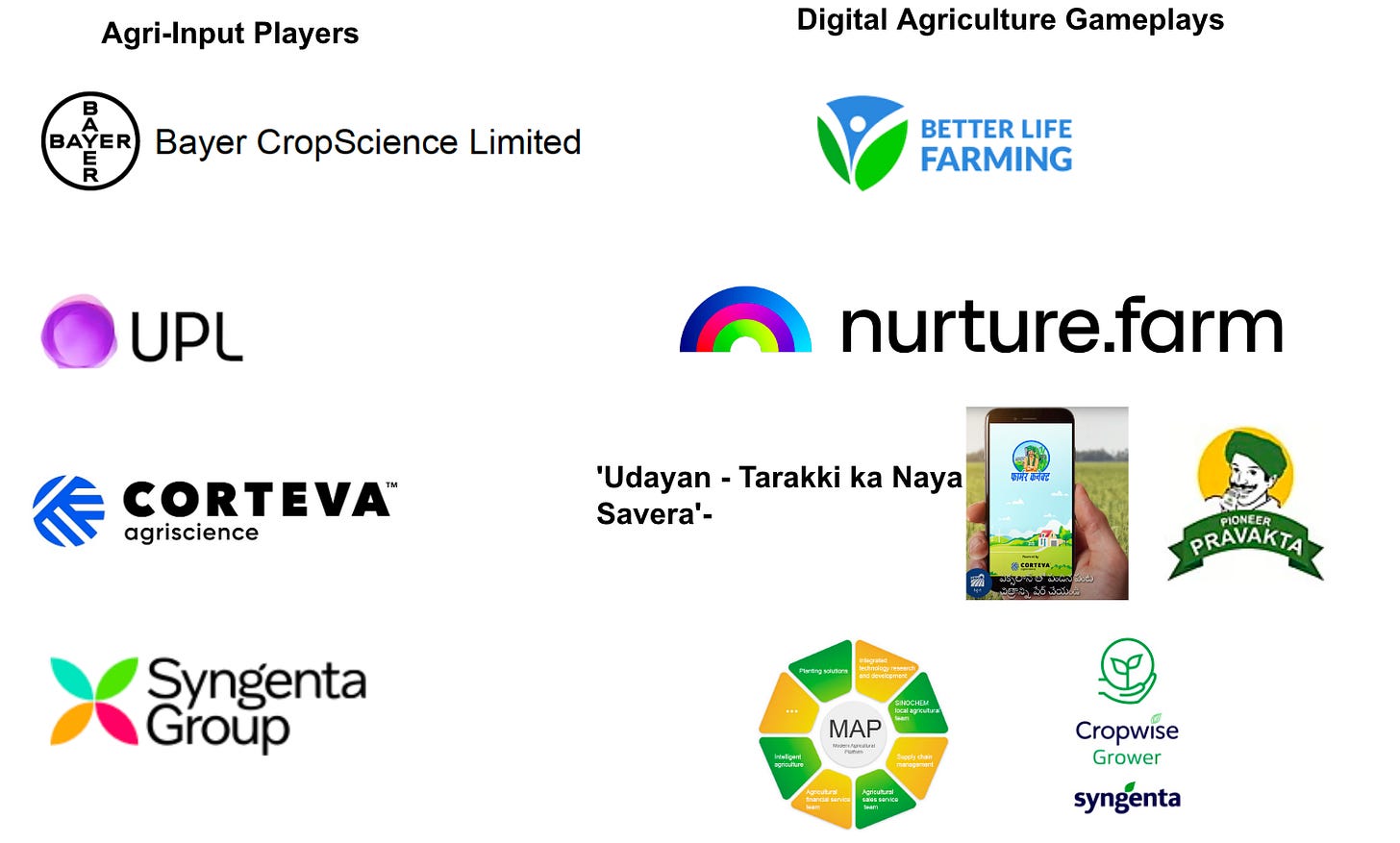Saturday Sprouting Reads: An Era of Food Insecurity?
Would historians of the future mark 2023 as the beginning of an era of food insecurity?

Dear Friends,
Greetings from Hyderabad, India! My name is Venky and I write Agribusiness Matters. Welcome to Saturday Sprouting Reads!
About Sprouting Reads
If you've ever grown food in your kitchen garden like me, sooner than later, you would realize the importance of letting seeds germinate. As much as I would like to include sprouting as an essential process for the raw foods that my body loves to experiment with, I am keen to see how this mindful practice could be adapted for the food that my mind consumes.
You see, comprehension is as much biological as digestion is.
And so, once in a while, I want to look at a bunch of articles or reports closely and chew over them. I may or may not have a long-form narrative take on it, but I want to meditate slowly on them so that those among you who are deeply thinking about agriculture could ruminate on them as slowly as wise cows do. Who knows? Perhaps, you may end up seeing them differently.
[Subscriber-Only] Can Big Four Agri-Input Firms Grok Digital Transformation
The term "Transformation" doesn't ring too well in my ears. There is something axiomatically pejorative about it when used in a business context.
That the term is liberally used by technology consultants (I used to be one), who end up moonlighting in the conslutting business (that wasn’t a typo) with strange bed partners such as Sales teams, System Integrators, IT Analysts, is well known. Its deeper implications in the way we perceive and formulate change aren't.
Before I inquire further, let me share the provocation which triggered these thoughts.
It comes from an excellent piece written by my friend and fellow agritech nerd, Rhishi Pethe. In his newsletter, he rightly states that the big 4 agri-input firms are at a fork in the road. It looks something like this.
Rhishi wrote,
“Last Friday, I caught up with a former senior executive at one of the leading input companies in the world. This executive had reached a similar conclusion a few years ago. They came to the conclusion that the world is getting bifurcated into teams good at agronomy and teams good at building AI/ML tools, and infrastructure at scale. This conclusion led the company down a path of partnerships with experts in software, data, AI/ML, while the incumbent focused on agronomic expertise.”
I’ve been tracking the big four agri-input firms’ digital agriculture gameplays and covering them in detail.
In case you want to get into the devil’s details, I tracked Corteva, compared UPL VS Bayer and last week, I wrote about Syngenta Group China’s tryst with Modern Agriculture Platform.
I am yet to do a deep-dive on BASF’s digital agriculture gameplay (although I did a brief analysis when I wrote on Plantix) and going by the latest numbers, I haven’t yet analyzed FMC’s digital agriculture gameplay.
When I look at the big four players and their digital agriculture gameplays, it’s evident that other than UPL, everyone else has stuck their guns to their core expertise (farmer-specific agronomy /crop scouting app) and gone ahead with partnerships involving agritech startups.
In this subscriber-only post, I explore why “grokking” digital is a matter of nurturing the appropriate culture and which of the big four agri-input firms is doing something about nurturing the right culture.
[Subscriber-Only] A No Man’s Land Called Agri-Biotech
There are many reasons why agri-food life sciences aren't warming up many investors in India.

Agri-Biotech is currently the no man's land for those stranded between plant sciences and life sciences.
Those who study agriculture do not study the core of life sciences. They end up reading applied sciences such as cropping, and agronomy. Who is out there to teach biochemistry, physiology, and chemistry needed to come up with innovations in agrifood life sciences?
And what about those plant biochemists and physiologists who come up with real solutions but don’t know how to take them to market or worse unable to diagnose if their solution is marketable in the first place?
2023: An Era of Food Insecurity?
Going by what is happening in the US, China, Europe, India and Pakistan, Eastern Africa, it seems likely that 2023 would herald an era of food insecurity.
I am surprised why there hasn’t been a lot of commentary on how US Agriculture is changing crop insurance rules to encourage farmers to grow two crops in a single year instead of one.
“Earlier this summer, the U.S. Department of Agriculture instituted new policies to encourage American farmers to begin growing two crops on one piece of land, one after the other, a practice known as double-cropping. By changing insurance rules to lessen the risk of growing two crops, the USDA hopes to significantly increase the amount of wheat that U.S. farmers could grow every year, lessening the reliance on big wheat producers like Ukraine and Russia and eliminating bottlenecks.” - US Asks Farmers: Can you plant 2 crops instead of 1?
Has the summer drought led to this move given, if analysts are to be believed, this year’s hard red winter wheat crop has been, ‘the smallest since 1963’?
Reacting to this move, Samarendu Mohanty,Asia Regional Director at International Potato Center (CIP) wrote:
“I never thought I will live to read that United States is asking farmers to plant two crops instead of one. …During my 35 years of professional career, the issue always has been how to control over production….”
The drought has made it equally worse for corn , tomatoes (10.5 million tonnes, less than a million in a normal year) and rice.
Now, why does this matter?
If you zoom in and see the gossamer web of our global food systems, you would notice that US food systems and trade have an outsized impact on the global good systems, with downstream effects on processed food sales in other countries and an array of unintended consequences worldwide.
What is happening in China?
With China reeling in from the worst draught, China has been obsessing over its pathway to internal food resilience.
“By the end of the year China – with its 20% of the world’s population – is projected to have accumulated and stashed away some 65% of the world's corn and 53% of the world's wheat.”
What is happening in Europe?
In a scene that could be straight from the Rings of Power TV series, Europe's centuries-old 'hunger stones' were recently revealed in the Elbe River. The stones date back to a drought in 1616: "Wenn du mich siehst, dann weine." ( If you see me, then weep.)
Numbers seem to be echoing the same cassandra’s song, further accentuated by soaring gas prices triggering fertilizer shortages.
While a perfect storm is coming its way in Pakistan, waters seem to be thankfully placid in India with no real threat to food security although it must be noted:
“…The year 2022 is emerging to be unique for Indian agriculture. Both the staple crops of rice and wheat appear to be suffering production losses."
What is happening in Eastern Africa?
“In Somalia, 7.1 million people are now acutely food insecure, while 7.2 million people in Ethiopia and about 4.1 million people in Kenya are severely food insecure due to the drought. At least seven million livestock, which pastoralist families rely upon for sustenance and livelihoods, have died across the Horn of Africa, including more than 1.5 million in Kenya, between 2.1 million and 2.5 million in southern and south-eastern Ethiopia, and three million in Somalia.”
UN General has been blunt enough to state in public that there will be “multiple famines” in 2023 with “real risk of food shortages” .
Will this be the tipping point that would bring a critical transformational change in global food systems?
A recent paper presents a neat bird’s eye view to categorize 155 countries’ food systems into five categories with four indicators.
The paper presents data to a conclusion we’ve all known all this while: We’ve made a Faustian bargain with nutrition and sustainability to make food affordable. Countries like the US in the final modernizing/industrial typology have the highest ecological footprint of consumption.
The paper is a good read if you want to understand how different countries fare in their journeys to building an equitable and sustainable food system. This brings a thorny question:
Is food (and agriculture) supposed to be moral?
So, what do you think?
How happy are you with today’s edition? I would love to get your candid feedback. Your feedback will be anonymous. Two questions. 1 Minute. Thanks.🙏
💗 If you like “Agribusiness Matters”, please click on Like at the bottom and share it with your friend.







Morality is not a word - it's a sequence of actions. And they can only be performed by a human.